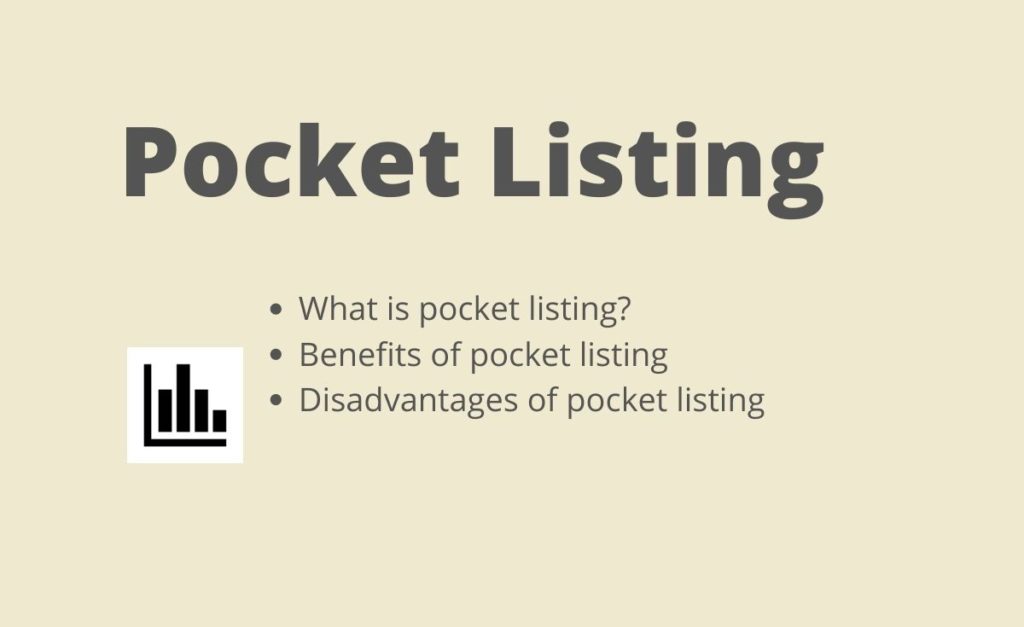Table of Contents
show
What does pocket listing mean?
A pocket listing is a listing where the seller works with his agent to sell the house on a private network before it is made available to other listings institutions such as MLS, according to fool.com. Think of this as advertising and selling the house to people you or your agent know first before you put it to MLS.
Advantage of pocket listing
Pocket listings have many benefits to the buyer, seller, and the seller’s agent.
The following are some of the advantages of pocket listing.
- Privacy of the seller and buyer: When you use a pocket listing method to sell your house, you get less exposure to the outside world. Less exposure will reduce the number of people showing up to your property. Hence increasing your privacy. In addition, the buyer will have more privacy since the sale will not be taken to the public listing services.
- The seller will get a chance to evaluate the price of the house: If the house is listed in a private network and stays there without an offer; it could indicate that the seller has priced the house much higher than it is worth.
- The seller’s agent will keep all commission: Usually, the commission is split between the buyer’s agent and seller’s agent. Since the house is being sold in a private network, there will be no buyer’s agent. It is more likely that the buyer and seller will know each other. As a result, the seller’s agent could keep all the commission.
Disadvantages of pocket listing
Although the pocket listing has some benefits, it also has some disadvantages. The following are some of the disadvantages of pocket listing.
- The house will have less exposure: Without listing the house to online listing websites or MLS, the house will have less exposure. As a result, it could be difficult to find a buyer.
- It can lead to ethical problems: Legally, real estate agents must support the party they are representing and work in the best of their interests. In the case of pocket listing, you usually have one agent who represents the buyer and the seller. This agent will be classified as a dual agent. This creates an ethical problem since the agent must disclose to the buyer all problems related to the property he/she is selling. Too much disclosure could push buyers away and too little disclosure could lead to legal issues.
- The house may not be priced properly: When a house is being sold, it will be compared to similar properties sold in the same area to estimate its price. These properties are known as comparables. Since the house is not on the open market, there will not be enough data to make these comparisons. As a result, the house could be priced much higher or lower than it is worth.









